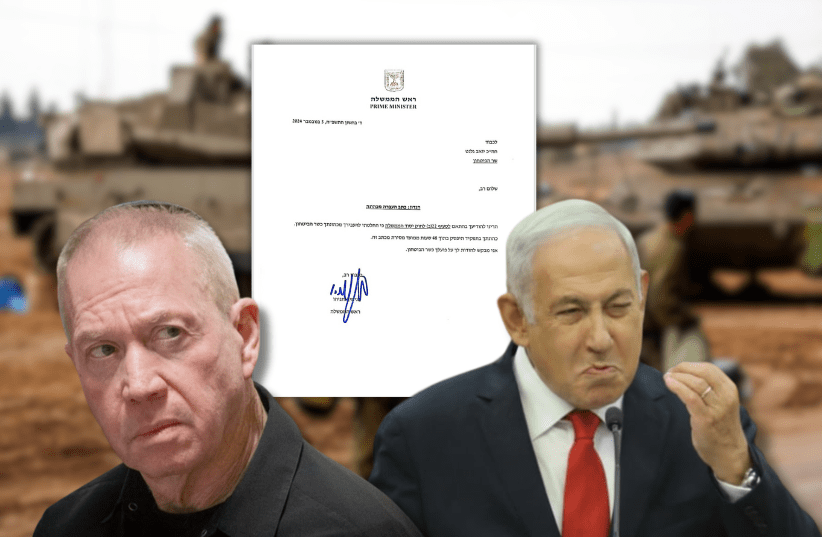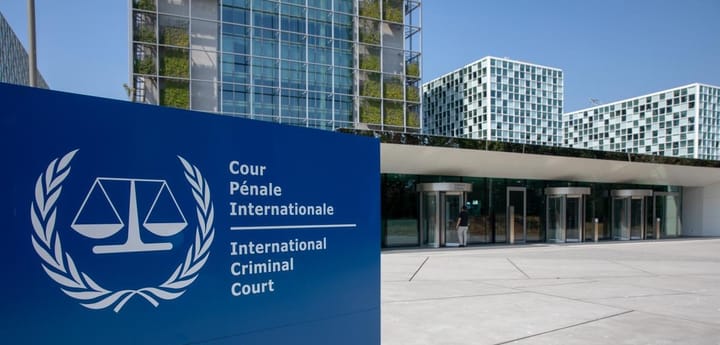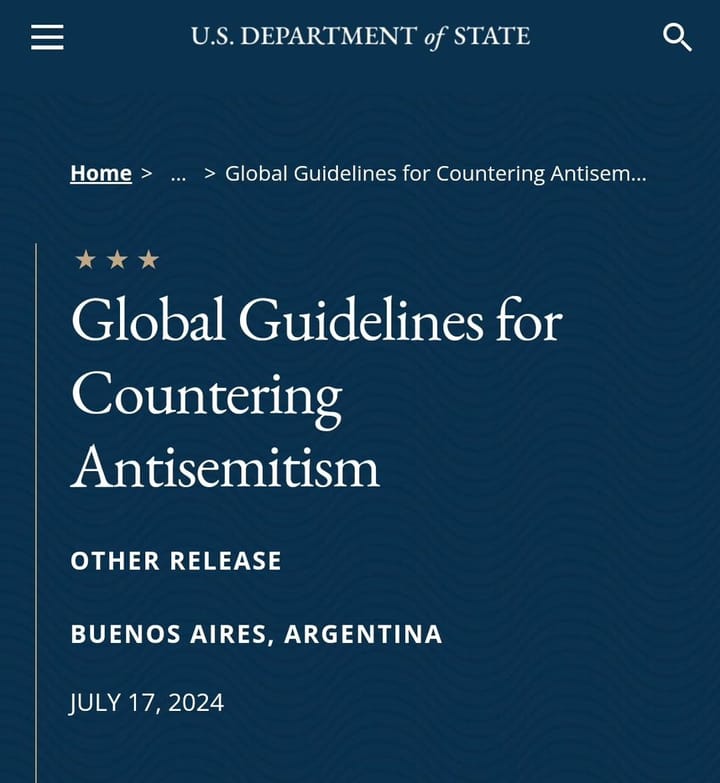The ICC Warrant for Netanyahu is a License to Terrorists. It Ushers in a New Age of "Pirate Licensing".

In the post-medieval era, states granted secret licenses to pirates who attacked enemy vessels.[1][2]. These were deliberate survival and expansionist techniques used by states during the 1700s and 1800s. In our times, international institutions like the International Criminal Court (ICC) are consciously or unconsciously granting immunity to armed terrorist organizations in ways that are no less dangerous than the pirates of the high seas a few centuries ago.
The ICC's decision to issue an arrest warrant for Israeli Prime Minister Binyamin Netanyahu and his former defense minister, Yoav Gallant, grants immunity to the Hamas terrorist organization. However, it grants a license to terrorists all over the world. Once terrorists anywhere can embed themselves efficiently in a civilian population and target sovereign states, they are assured of protection under the Rome Statute.
This is a license to terrorists.
Three main pointers emerge that indicate that the ICC’s decision to issue a warrant for the Israeli prime minister will ultimately be a bad precedent for the Rome Statutes and the Court as an institution. It will open the floodgates for many issues that will ultimately dent the credibility and essence of the ICC.
No Real Accountability Outside Asymmetric Warfare – Terrorist Immunity
A false equivalence is drawn between Israel and Hamas in the name of preventing mass atrocities on civilians. In the warrant, they have mentioned that their warrant is for Israel's prime minister and defense minister on the one hand and three Hamas leaders – two of whom have been confirmed dead.[3].
The false equivalence overlooks three key facts:
1. Hamas is a terror group,
2. Hamas has a policy of embedding itself behind the civilians of Gaza, and
3. Hamas declared war on the state of Israel on October 7, 2023.
An impression created by this is that the Gaza War is a war involving two equal parties. Hamas is presented as an organized military that is fighting a regular war with a sovereign state. And the state's leaders are using extreme force not out of necessity but out of their own volition.
First of all, terror groups act differently from sovereign states. Terror groups have options to hide behind civilians because they do not have any real accountability. It is a pity the ICC system has not developed to separate terror groups' level of accountability from that of a state.
It is rather embarrassing that the justices of the ICC cannot make a distinction between terror groups' use of violence to disrupt states and the nation-state's obligation to use legitimate force to suppress a disrupting entity.
Thus, two assessment standards should have been in place to measure Israel's actions based on necessity. In contrast, Hamas' actions are evaluated based on their motivations as a non-state militant group.
Ultimately, these two standards must be developed into a coherent body of rules that will be used in the future. While we can only hope that terrorist attacks like the October 7 massacres will never happen in the future, it is possible that such acts will erupt. And this ruling of "equally" charging leaders of a sovereign state alongside heads of a terror group will be at the back of the minds of would-be terrorists.
Why should they desist from starting or operating within a terrorist organization if they know the state's use of violence to pursue them will be criminalized by the ICC?
A Motivation for State-Sponsored Terror – New Age of Pirate Licensing
ICC's decision to indict Israel's leaders for a war in pursuit of a terrorist group holding hostages ushered in a new age of Pirate Licensing.
The Gaza Strip is under siege. Gazans have no access to weapon manufacturing capabilities. Thus, they got their arms from some other state on the planet.
Whoever armed and trained Hamas fighters for the October 7th massacres is not mentioned by the ICC.
That means any state can attack any other state by sponsoring terrorist organizations. After all, it is expensive and legally dangerous for a state to attack another state. Therefore, countries can work through proxies.
Looking at how Hamas has conditioned the minds of tens of thousands of Gazans to accept an execution by Israeli forces as a blessing, the clientele model for the development of terrorism will grow with this ruling.
Many sovereign states are likely to find it more expedient to fund and provide a de facto terrorist license to groups around the world. This was what Iran was doing in the Middle East until Israel rose and struck Hezbollah's leaders with a lethal blow two months ago.
The ICC should have considered that and set two separate standards for sovereign states and non-state militias and armed groups. In the absence of that, it appears that the ICC is encouraging war crimes and mass murders under the guise of treating terror groups as co-equals with nation-states.
And if, after everything, a state sponsor of a terror group is not held accountable by the ICC, it is conclusive that the Court endorses the arming of terrorists to start wars or commit mass atrocities. Since Iran has not been mentioned anywhere in this indictment process, it is clear that covert state sponsorship of terror is acceptable by the Court.
Dignity of the Court, Unconscionability & Processes Used by the Court
In one of the vital constitutional cases of the earliest liberal democracies, ruled by a written Constitution, Marbury v. Madison[4], the fundamental outcome indicates that no court is immune to the basic principles of natural justice and judicial review. The current international order, which accommodates the Rome Statute and ICC as a court within its rungs, is modeled on the American Constitutional framework.
Marbury v. Madison[5], shows that the survival of a court is premised on the judges' credibility, which is inferred from the conscionability and soundness of their decisions. Justice exists in an objective sense. International criminal law is not to be applied based on the feelings or pressures exerted on the judges. An intrinsic and extrinsic sense of objectivity must be attached to every case.
Hamas executed 1,200 citizens of a sovereign state based on their convictions. As a group, Hamas has shown that they are willing to use violence against a sovereign state to meet their goals.
Any sovereign state must protect its citizens and eliminate terror groups. This is a universal obligation of every state on the planet.
Hamas is distinct from Hezbollah because Hamas has spent years to embed itself in the population it controls in the Gaza Strip. Israel's actions in southern Lebanon have had far fewer civilian casualties than in the Gaza Strip. The only difference is that Hezbollah does not have a formal policy of hiding behind civilians. Hezbollah has its own military assets that Israel is dismantling with so much care and precision that few states on the planet can ever attain under existing circumstances.
Thus, this case's precedent significantly haunts the International Criminal Court. This ruling's false equivalence does almost nothing to discourage non-state violence against sovereign states.
It also ties the hands of democratic states to defend their citizens when they come under attack. Therefore, it is fair to say that only an autocratic state like Syria or Yemen can fight terrorism without being held accountable.
The Gaza War comes with no doubts in terms of moral clarity. A terrorist organization driven by a unilateral conviction attacked a sovereign democratic state. In cases like these, leniency to the attacker is an injustice to the attacked sovereign state. Therefore, the ICC's decision to issue a warrant to leaders of a sovereign state places a dent in the Court's reputation, reliability, consistency, and scope of decision-making.
Conclusion
The ICC cannot conscionably accuse leaders of sovereign states who defend their states from non-state militias. The right thing to do is to develop two frameworks for assessing state and non-state actors in combat situations. The standard for state actors going after terror groups in customary international law has always been based on necessity rather than proportionality. The fair standard for criminal liability for non-state terrorist groups is the motivation for their actions and the gains they hope to make from their use of violence. The inherent defects in the ICC's decision to issue warrants for the Israeli prime minister and former defense minister are driven by a dangerous application of false equivalence. This will lead the world into a new age of pirate licensing. The decision grants significant immunity and a license to terrorists all over the world. In the future, this decision's precedence will tie the hands of democratic states in defending their citizens and properties. State sponsors of terror will inevitably exploit this to grant terrorist licenses to terror groups around the world. ICC's current precedent grants protections to these terrorist groups as they are now aware that they will be treated equally with the states they attack. As it stands, the choice of the ICC to issue a warrant against leaders of Israel dents the reputation of the Court in the face of objective justice in its true form and capability of creating a better global order.
[1] The Tay Son Dynasty of Vietnam (1771-1802) granted a haven to Chinese pirates expelled from China during the Qing Dynasty (1644-1912), Source: Robert J. Anthony. “Maritime violence and state formation in Vietnam: Piracy and the Tay Son Rebellion, 1771–1802" In: Persistent Piracy (London: Palgrave, 2014) Chapter 5
[2] In the quest for the colonization and control of the Americas, France, Spain, England/Great Britain all issued "privateering licenses" to various groups of "friendly" pirates who destroyed opposing states' naval and maritime resources. Britain benefited the most from this, and ultimately granted pardons to all pirates through the Acts of Grace in 1717-1718 after they had consolidated their interests in the Western Hemisphere and were ready to introduce slave plantations and colonial projects, Sources: Martin Mares. "The British Contribution to the Development of Piracy in the Golden Age of Piracy" University College of London, 2015; John Latimer. Buccaneers of the Caribbean: How Piracy Forged an Empire. Boston, MA: Harvard University Press, 2009
[3] International Criminal Court. Situation in the State of Palestine: ICC Pre-Trial Chamber I issues warrant of arrest for Mohammed Diab Ibrahim Al-Masri (Deif)" Released: November 21, 2024. Available at: https://www.icc-cpi.int/news/situation-state-palestine-icc-pre-trial-chamber-i-issues-warrant-arrest-mohammed-diab-ibrahim
[4] 5 U.S. (1 Cranch) 137 (1803)
[5] 5 U.S. (1 Cranch) 137 (1803)




